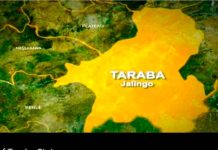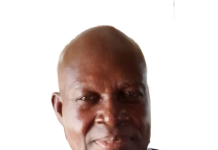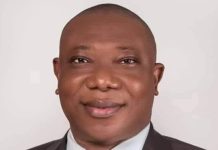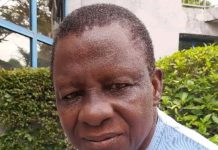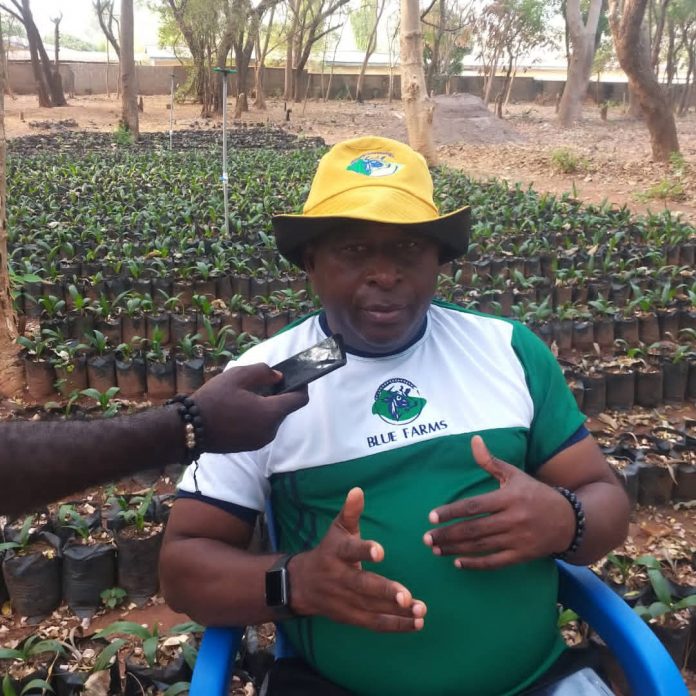Palm Oil is the next crude oil in Nigeria – Alex Adingi.
Alex Atim Adingi is the co-founder of Blue Farms, an offshoot of Midwest Agro Services Limited. In this exclusive interview with Journalists, the farmer spoke on investment in the agriculture sector to impact Africa and the world. Excerpts.
You are the co-founder of Blue Farms; may you please tell us why you established the farms?
I am the co-founder of blue farms, in partnership with my friend of many years and his name is Emmanuel Olumide Adekumbi; he is from Lagos. We founded the blue farms arising from the fact that we saw a lot of potential first in farming, but basically we saw a lot of people go into retirement and never had something particularly to hold on to, because so many people are working and never see where to invest their funds on. What we are doing now is like a crowd funding where people come together and bring their little funds since they cannot take just about fifty thousand naira and develop a farm, we can have about a hundred people who can bring fifty thousand naira each and develop a very large farm, you invest in it and take from the proceeds reinvest and build up your capital or build up your retirement funds where it could help you thereafter. It is also a pool of investment where people invest and get their dividends. That’s what brought about blue farms. We have the farms in three geographical areas. In Benue we have oil palm nursery; we are nursing these palm trees farm in view of selling out to government because right now the crude oil we have been celebrating too much is no longer celebrated because the world is shifting from crude oil to other sectors. For example, manufacturers of cars are moving to alternative energy like solar rather than fuel and the crude oil is getting quickly out of fashion but oil is oil whether crude or palm as far as I am concerned. Apart from other agricultural produce, the palm tree farm we have in Benue State is also in Ado Ekiti and Abuja. People have invested already and after four or five months as the circle may be we give them back their capital and proceeds; if they want they turn it over and continue. This is basically to the people who cannot go right into the farm arising from either insecurity or they’re not naturally farmers but want to get proceeds from farming.
You have been in farming for fifteen years and blue farms in particular is one year; what can you say is your major achievement?
We have seen over time that farmers keep recycling their farming round and round without progress. They farm year in year out the profit is very little and sometimes they’re not able to sell it at once. If you have yarms let’s say like twenty tubers because you have lack, you go to sell it out, the next market you sell ten tubers and at the end of the farming season you don’t really see what you have achieved. so what we are doing now is that before we farm we get off takers which means that we are farming now from the market to the farm and no longer from the farm to the market. What we have on ground is already taken by Kogi State. Before we farm we already know the needs that are in the market, we already have the off takers and we go to farm it, so nothing is wasted. Basically we have achieved a lot. We have also known that farmers don’t just go into farming, they need to go into the market first and see the need before they go into the farm.
You’re operating in three states of the country and yet to reach other states; do you intend to cover the entire country ?
As much as we can, we are into many other products like pigery, poultry, fishing and we also export ginger and Sesame seeds. Sesame and ginger are basically commodities which we buy from the market and export but this area of palm trees is what we intend to cover the entire country, the reason is that this is our next oil and not just ordinary agriculture. We are getting some from Benin, some from Malaysia, the same Malaysia that came to take our seedlings which is now the hub of their economy we are now collecting from them and coming to plant, it takes only two three years and then you begin to harvest. We want as much as possible these seedlings to reach the whole part of the country. The nursery in Benue State we intend it covers the whole of Middle Belt, the farm that is in Kuje, Abuja we intend it covers the north while the one that is in Ekiti we intend that it covers the west. Gradually we are not rushing but we want the palms especially to touch every part of the country as much as we can.
Do you need more investors in your company; how do you think you need to double your impact ?
We need more investors yes, but we understand that everything is gradual. We want to grow but we don’t intend to rush because once you’re collecting people’s money you have to be very very careful, your integrity matters. We want to get the investors but we want their money to be safe because first the whole of the farm is ensured by Leadway Insurance that itself is a guarantee to a lot of people and to our investors. By the time we begin to harvest, sell out our harvest and give people their dividends, other people will come in. We started and our vision is very clear, in the next ten to fifteen years we want to know where we will be in all parts of the country. It’s not something that we intend to rush but we know it’s very clear that agriculture is a clear leader of all the sectors in the country. In fact, agriculture is a low hanging fruit and particularly palm oil is a low hanging fruit that people have never taken cognizance of. Palm trees used grow mostly in the east; swampy areas but now it grows literally even in the desert, so it can grow in Zamfara Sokoto, Maiduguri and all other states, that’s the great thing about it. Interestingly, the seeds we brought from Malaysia have resistance to disease so as much as possible if you go round our seedlings you see that out of thousands it was only four that died because the fertilizer was wrongly applied because these are improved high breeds that we brought from Malaysia.
Where do you see blue farms in the next five years ?
Five years might even be too small for me but in the next five years I see blue farms reaching clearly about twenty five states in this country and people investing and getting a lot of dividends from blue farms.
Are you satisfied with the Agricultural policies in Nigeria?
I have never studied much about other policies except the once that concerns me but in our agriculture technology investment I am not satisfied with the government approach to things. Right now, I expect the government to support this kind of investment where the Minister of Finance has announced that there is recession, I expect that the next low-hanging fruit is agriculture where the land is still fertile. Dollars might not be coming in but our ground is still fertile that we can farm and support Africans and even the world with what we have and make back our currency but the government comes up putting a lot of pressure on the farmers or any of the sectors that is doing well so to say; this looks to me as a conspiracy against ourselves. The government should do better if it is a realistic one.
What are the challenges blue farms has faced within the years it has been in operation?
So far, the issue of finances, it is very hard for government to give you support financially even though it is on paper where the government is saying she is supporting agriculture and all of these things. Sometimes you want to get facilities from government but they are really not there or not reachable, it’s still get back to the fact that you have to know who is who; these are the challenges. Other than that we are not complaining because we are not rushing into making it so large; we are taking steps one by one and we want to go gradually where first people have confidence in us and then our integrity maters a lot to us. The challenges you see there are nothing other than the challenges of finances we need from the government.
How can people/potential investors get in touch with you?
As I had earlier mentioned we currently have farms in Benue, Abuja and Ekiti. Which are open to visit by our investors. Potential investors can also visit our offices located closest to them. We have Abuja office located at SINOKI House, Plot 770 Off Samuel Adenulegun Avenue, Opposite ministry of transportation central business district Abuja. We also have a Lagos office located at 51. Calcutta Crescent Apapa GRA Lagos. Also with the advent of technology one doesn’t necessarily need to visit a particular location to initiate contact so people can also contact us via our social media handles
@bluefarmsng (Facebook, Instagram and Twitter)
Our webpage is user friendly as well www.bluefarmsng.com
Our email addresses are
info@bluefarmsng.com and bluefarms@gmail.comOur contact numbers are +2349010669241 (WhatsApp)+2349010669255 (voice calls). Thank you.





